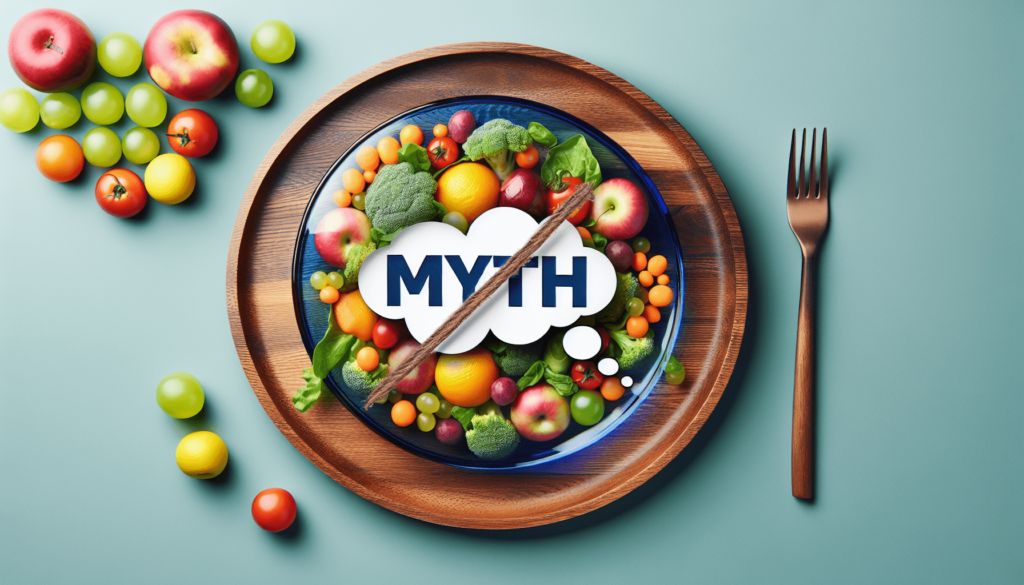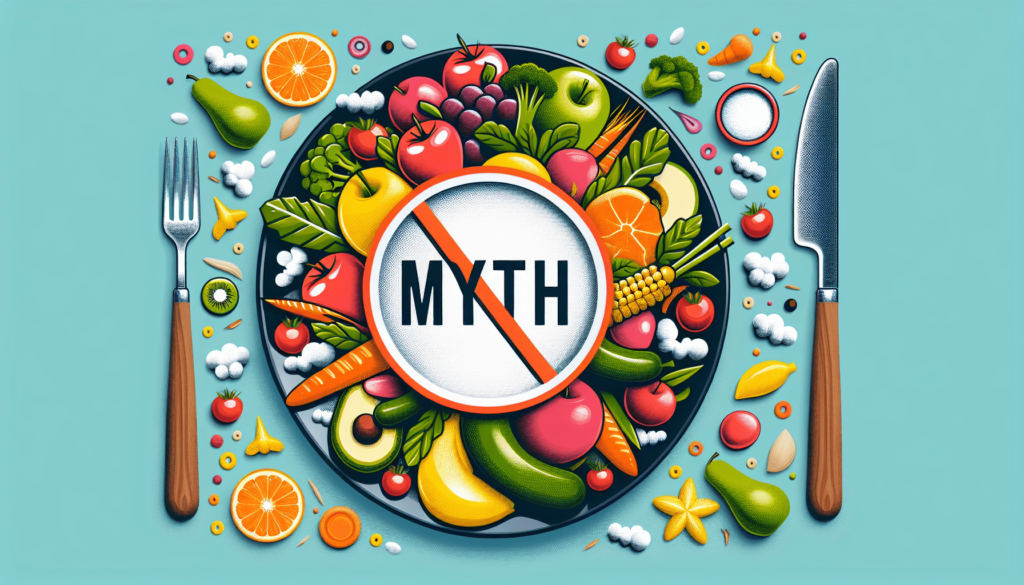Have you ever wondered if everything you’ve heard about nutrition is actually true? In a world filled with conflicting information, it can be challenging to separate fact from fiction when it comes to what you should and shouldn’t be eating and drinking. Let’s debunk the top 10 nutritional myths that have been misleading you for far too long.

Myth 1: Carbohydrates are bad for you
You might have heard that carbs are the enemy when it comes to weight loss and overall health. But the truth is, not all carbs are created equal. It’s essential to distinguish between simple carbohydrates like white bread and sugary snacks, and complex carbohydrates like whole grains, fruits, and vegetables. Complex carbs are a vital source of energy and essential nutrients, so don’t fear them!
Myth 2: Fat makes you fat
It’s a common misconception that consuming dietary fat leads to weight gain. In reality, fats are a necessary part of a healthy diet and play a crucial role in hormone regulation, cell structure, and absorption of fat-soluble vitamins. The key is to choose healthier fats like those found in avocados, nuts, seeds, and fatty fish, while limiting saturated and trans fats.
Myth 3: Eating after 8 p.m. will make you gain weight
Many believe that consuming food late at night will automatically result in weight gain. The timing of your meals is not as crucial as the total amount of calories you consume throughout the day. Eating a balanced meal or snack before bedtime can actually help promote restful sleep and prevent late-night cravings that could lead to overeating unhealthy foods.
Myth 4: Egg yolks are bad for your cholesterol
Egg yolks have gotten a bad reputation for their cholesterol content, but the latest research shows that dietary cholesterol has a minimal impact on blood cholesterol levels for most people. In fact, egg yolks are packed with essential nutrients like vitamin D, choline, and antioxidants. Unless you have specific dietary restrictions, enjoy whole eggs in moderation as part of a balanced diet.

Myth 5: Juicing is the best way to detox your body
Juice cleanses and detox diets have gained popularity as a quick fix for weight loss and detoxification. However, the truth is that our bodies are already equipped with organs like the liver and kidneys that naturally detoxify and eliminate waste. Juicing can be a convenient way to boost your fruit and vegetable intake, but it’s essential to include whole foods and fiber in your diet to support optimal digestion and nutrient absorption.
Myth 6: All calories are created equal
It’s easy to think that as long as you stay within your daily calorie limit, you can eat whatever you want. But not all calories are metabolized the same way in the body. Foods with empty calories like sugary drinks and refined snacks can spike blood sugar levels and lead to energy crashes, while nutrient-dense foods like lean proteins, whole grains, and colorful vegetables provide sustained energy and essential nutrients for overall health.
Myth 7: You need to eat meat to get enough protein
Protein is an essential macronutrient that plays a vital role in muscle repair, hormone production, and immune function. While meat is a great source of protein, there are plenty of plant-based options that can provide all the protein you need. Legumes, nuts, seeds, tofu, tempeh, and whole grains are excellent sources of plant-based protein that can help you meet your daily requirements while promoting heart health and lowering cholesterol.
Myth 8: Gluten-free means healthier
Gluten-free diets have gained popularity in recent years, with many believing that eliminating gluten can lead to weight loss and improved health. For those with celiac disease or gluten intolerance, avoiding gluten is essential. However, for the general population, there is no evidence to support the claim that a gluten-free diet is healthier. In fact, many gluten-free products are highly processed and lack essential nutrients found in whole grains.
Myth 9: Supplements can replace a healthy diet
With the vast array of supplements available on the market, it’s easy to believe that a pill can make up for poor dietary choices. While supplements can be beneficial for addressing specific nutrient deficiencies, they are not a replacement for a healthy, balanced diet. Whole foods provide a complex combination of nutrients, fiber, and phytonutrients that work synergistically to support overall health and prevent chronic disease.
Myth 10: Eating small, frequent meals boosts metabolism
The idea that eating smaller, more frequent meals throughout the day can rev up your metabolism and promote weight loss has been widely circulated. However, recent research suggests that meal frequency has little to no impact on metabolic rate or weight loss. Instead, focus on eating when you’re hungry and stopping when you’re satisfied, regardless of how many meals you consume per day. Listen to your body’s hunger and fullness cues to maintain a healthy relationship with food.
In conclusion, it’s essential to be critical of the information you receive about nutrition and health. By debunking these common myths, you can make more informed choices about what you eat and drink to support your overall well-being. Remember to focus on a balanced diet that includes a variety of nutrient-dense foods, stay hydrated, move your body regularly, and prioritize good quality sleep for optimal health and vitality. Don’t let myths and misinformation dictate your relationship with food—empower yourself with knowledge and make choices that support your health goals.

